Somewhere after the Sukhumvit-Asoke Intersection in Bangkok is Sukhumvit Soi (Lane) 12. About 50 metres off the main road is Cabbages and Condoms.
You may not find many cabbages but you can certainly find many prophylactics. Well, you still find lots of other food to satisfy your gastronomic needs. And if you must absolutely have cabbages, then one will probably be made available for you at a cost. The condoms, though, come free of charge.
And you have lots of it at this restaurant. In fact, a sign you would see as you leave the restaurant after a meal is that the management does not have any candies to give out, so take a condom instead. And they come in two sizes.
Take an after meal stroll or a walk before the food you ordered arrives and you would find a gift shop that sells lots things pertaining to safe sex and family planning. Most aptly so as the restaurant is in fact situated next to the Population and Community Development Association (PDA).
Other handicraft products on display are produced by villagers from the rural areas of Thailand.
In fact, the restaurant, the brainchild of one Meechai Veeravaitaya, was conceptualised in part to promote better understanding and acceptance of family planning and to generate income to support various development activities of the PDA.
Proceeds from the sale of handicraft products, from key chains and neckties to books, t-shirts and food from the restaurant are used to fund development and social welfare activities of the association.
The restaurant is most certainly proud of the fact that the food served in its establishment is guaranteed not to cause pregnancy, says its brochure. Now there are not only Cabbages & Condoms Restaurants, there are also Cabbages & Condoms Resorts as well.
The restaurant’s name, tend to produce a few giggles and smiles. It does seem as colourful as the life of the person behind it.
According to his autobiography, Meechai studied in Australia in the 1970s and admitted that he was actually quite popular with the girls. He was having his fair share of fun until his mother threatened to bring him home if he did not buck up. He added that his elder brother was the studious one between them.
On another occasion, he failed to turn up at his own wedding at the appointed time. A search party sent out found him still sleeping and he did have a lot of explaining to do before the girl finally forgave him.
But then Meechai was not only fun and games. On his more serious side, upon completing his education and returning home, Meechai began to recognise the plight of rural Thais, what with their large families, small land holdings, and the capricious rice growing seasons affected by drought and flood.
He began a local citizens' improvement non-governmental organization (NGO) called the Population and Community Development Association.
Early projects included agriculture, horticulture and alternative cottage industries. Cotton and corn raising were tried in place of poppies and hemp. The eucalyptus tree of Australia was farmed for its hardiness and fast-growing qualities, and sewing and tailoring programmes were developed.
But he also recognized that the fundamental problem with community development and the improvement in the quality of life for the individual was the very large families rural Thais tended to have.
He began a programme of family planning and strived to make the condoms and the use of condoms popular. He is proud of the fact that if you walk into a drug store and ask for a meechai, the sales person will likely direct you to the nearest condoms on sale. In Thailand, the word meechai is now synonymous with condoms.
He also made vasectomy popular. In spite of strong objections, such clinics were established, along with publicity campaigns that the medical procedure did not result in loss of sexual potency, which is a common fear.
Those who participated in getting a vasectomy were given a T-shirt, which proclaimed, "I've been vasectomised and my pigeon still flies high".
Soon after, to have two children became popular. With his programme and that of the Thai Ministry of Health, population growth rate in Thailand dropped from 2.4 per cent in 1970 to 1.2 per cent in 1995.
Instead of doubling the number of Thais in 40 years, that doubling of the population will not occur for over 75 years now. That has major implications on both the social and economic development of any country.
Meechai attributed his success to the fact that he simply showed the benefit of family planning and smaller family numbers to the people.
From family planning, he moved on to sexually transmitted diseases (STD), especially with the rise of AIDS cases in Thailand. Meechai organised condom distribution campaigns among sex workers in the Bangkok’s red light areas and the use of condoms had helped check the rise of STDs in the country.
In between those works, he found time to write an autobiography and served in the government of interim Prime Minister Anand Panyarachun.
For his social works, Meechai Veeravaitaya was awarded the Ramon Magsaysay Award for community service.
When you think of Meechai, you cannot help but think of another icon from the 1980s. Singer Bob Geldof organised Live Aid to help the starving in Africa. Both men are special in their own way and you cannot help but be moved by the things they have accomplished.
They were ordinary human beings who went on to perform extraordinary things. Or maybe because of my upbringing I have only been conditioned to recognise saints when they are cloaked in religious robes.
Wednesday, September 20, 2006
Subscribe to:
Post Comments (Atom)


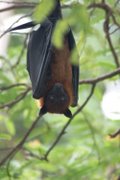
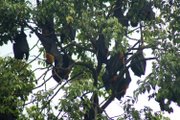


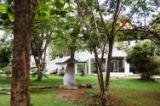

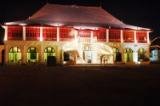
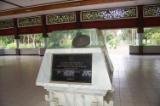






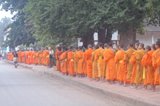


1 comment:
How about a saint who is FURRY, HAIRY and EXTREMELY Cuddly?!!!
Huggedy Bear
Post a Comment